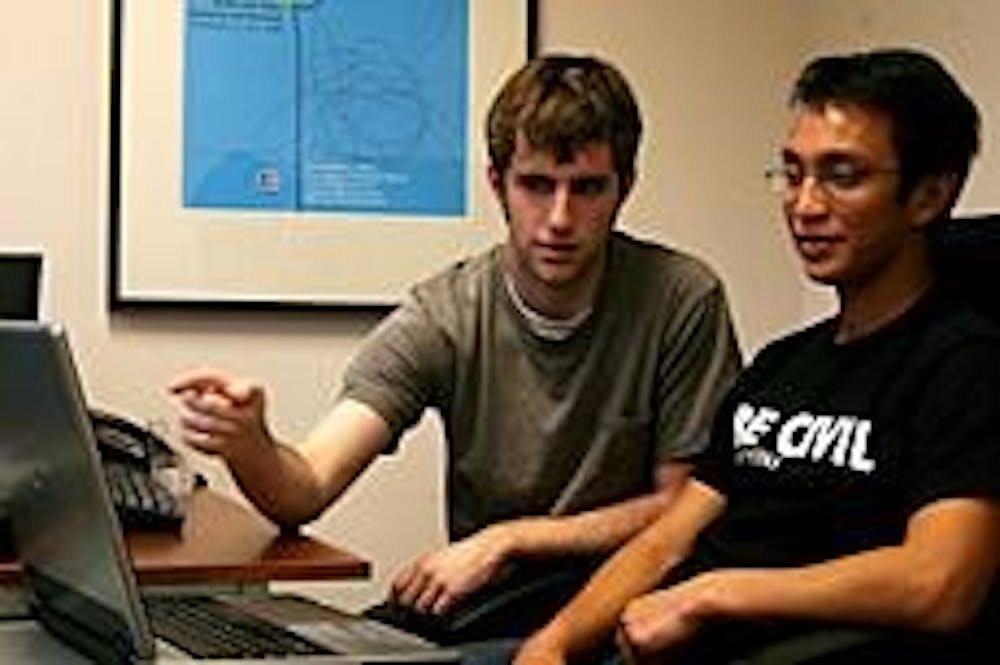Students looking for tech support on campus during evenings and weekends can now get help from their peers in Hughes Hall.
The pilot program, called Peer to Peer Tech Support, will be jointly run by the Center for Teaching Excellence, the Office of Campus Life, the Office of Information Technology and Bender Library.
The program's employees, called STARS (Student Technology Assistance Resources), work out of the Hughes Computer Cluster on the first floor of Hughes Hall.
Students having trouble with their computers, either Macintoshes or PCs, may drop in during business hours, according to Assen Assenov, the program's supervisor. Business hours are Monday through Thursday from 6 to 11 p.m. and Saturday and Sunday from 11 a.m. to 5 p.m.
Assenov, who is also the manager of the Social Science Research Lab, said program employees are all students on CTE's staff.
"The Center for Teaching Excellence felt that computer support was lacking in the evenings and weekends in the dorms," Assenov said.
Matt Espina, a sophomore in the School of International Service, is a member of the five-student staff.
"It just started this year. It's never been done here before," he said. "It's been going very well."
The program was designed to "empower students and give them more opportunities and resources to help their peers," Assenov said. "It will encourage interaction between peers and is part of a community-building project."
Assenov said the program is "one-stop shopping for students." Students can get help for their laptops or desktops for everything from viruses, memory, Internet troubles, e-mail, G-drives, network space, software and the installation of new programs.
"Anything that the Help Desk can do here, we can handle," said Andrew Robinson, a sophomore in SIS who also works for the program.
"We see our employees as OIT [Office of Information Technology] ambassadors," Assenov said. "This program is an addition to what OIT already provides."
Erin Scanlon, a sophomore in SIS, said STARS' accessibility is key to its success.
"As long as I have access to them [whenever OIT isn't open], I think it's a good idea," she said.
Amanda Fontenot, a sophomore in the College of Arts and Sciences, said the student workers' ability to fix technological problems is important.
"I think it's a good idea as long as they know what they're doing," she said.
The program officially started on Tuesday with a ribbon-cutting and small reception. Depending on the response from students, the program could expand to other dorms besides Hughes, Assenov said.
"It's up to the leadership to expand the program once it has been evaluated," Assenov said.
Although the program was designed for Hughes Hall, students from Leonard, McDowell and even those who live on South side are welcome.
"We will not refuse any student," Assenov said.
Anyone looking for more information on the program can drop by the Hughes Computer Cluster during office hours, call extension 3709, instant message them (their screen name is ctestars on AOL Instant Messenger) or check out their group on Facebook, according to Assenov.





